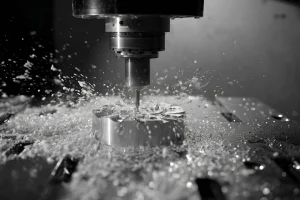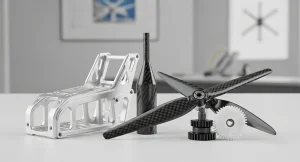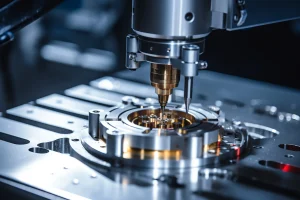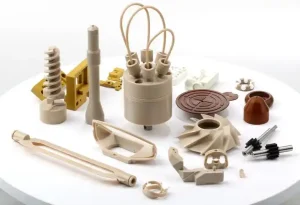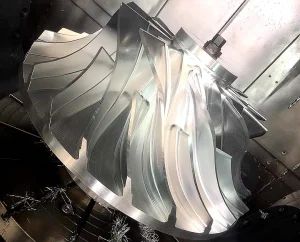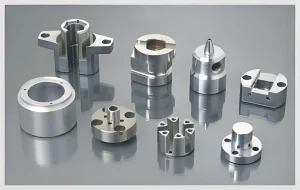I. Introduction to CNC Milling Machine
A. Definition and Basic Functions
A CNC milling machine, also known as a computer numerical control milling machine, is a powerful tool in the machining world. It operates based on computer programming which precisely controls the movement of the milling tools. With it, a variety of tasks can be performed during the machining process. For example, it can carry out milling operations to shape materials by removing unwanted parts. It’s also capable of drilling holes with high precision. Additionally, tasks like boring and tapping can be achieved with the help of a CNC milling machine. In simple terms, it turns raw materials into well-shaped and accurately dimensioned components according to the preset programs.
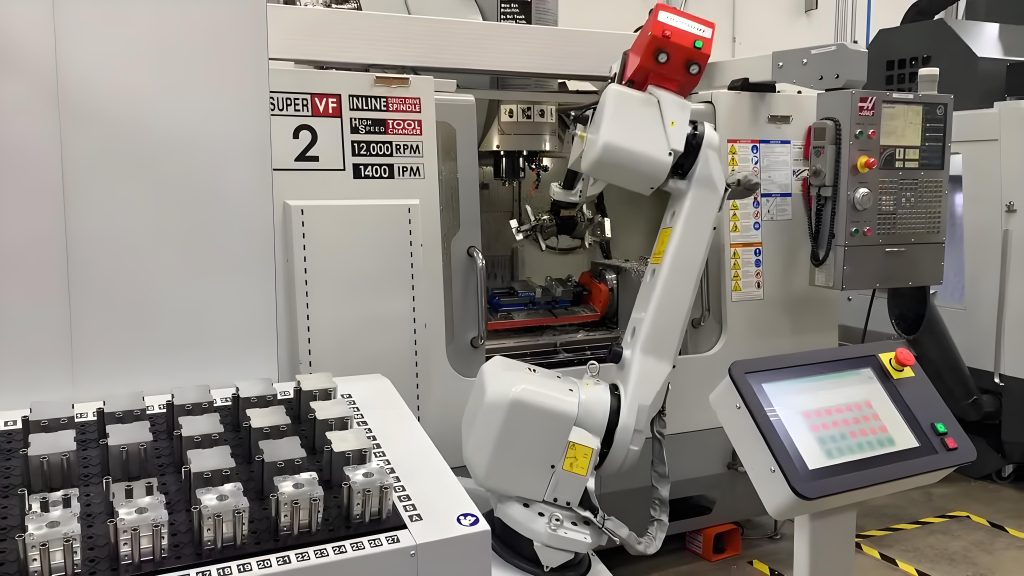
B. Importance in Manufacturing Industry
The CNC milling machine plays a vital role in the modern manufacturing industry. Firstly, it enables the production of various precise components. In fields such as aerospace, where extremely accurate parts are needed for the safety and performance of aircraft, the CNC milling machine can produce parts that meet the strict tolerance requirements. In the automotive industry as well, it helps in creating engine components, transmission parts and so on with high precision. For the production of molds used in manufacturing all kinds of products, the CNC milling machine can precisely shape the complex geometries of the molds.
Moreover, it greatly improves production efficiency. Unlike traditional manual milling machines that rely heavily on the skills and physical efforts of operators and are slower in operation, the CNC milling machine can work continuously once programmed, reducing the production cycle time. It also ensures consistent quality of the produced components. Every part made by the same program will have the same high quality and accurate dimensions, which is crucial for mass production. And with its ability to handle complex shapes and designs, it expands the possibilities of product innovation in the manufacturing industry, allowing manufacturers to create more advanced and unique products to meet different market demands.
II. Application Areas of CNC Milling Machine
A. High-Precision Manufacturing Fields
CNC milling machines play a crucial role in high-precision manufacturing fields. In the aerospace industry, they are used to produce components like turbine blades, engine parts, and structural elements of aircraft. These parts need to meet extremely strict tolerance requirements to ensure the safety and performance of airplanes during flight. For example, the complex shape and precise dimensions of turbine blades can only be achieved with the high-precision milling capabilities of CNC machines.
In the automotive industry, CNC milling machines are applied in creating engine blocks, cylinder heads, and transmission parts. The precise machining ensures that these components fit together perfectly and work efficiently, contributing to the overall performance and reliability of vehicles. For instance, the smooth surfaces and accurate holes drilled in engine blocks are the result of CNC milling operations.
The mold manufacturing sector also heavily relies on CNC milling machines. Molds with intricate geometries for products such as plastic parts, toys, and consumer electronics are crafted using these machines. They can accurately reproduce the detailed designs required for mass production of high-quality products.
Moreover, in the medical device industry, CNC milling machines are employed to make parts for surgical instruments, prosthetics, and implants. The precision is vital here as these devices need to interact precisely with the human body. For example, artificial joints need to have a perfect fit and surface finish to function properly and provide comfort to patients.
B. General Mechanical Processing
CNC milling machines are not only limited to high-precision fields but also find wide applications in general mechanical processing. In furniture making, they can be used to create decorative elements, precise joints, and custom-designed parts. For example, intricate carvings on wooden furniture or the accurate milling of metal fittings can be achieved with CNC milling machines, adding unique and high-quality touches to the final products.
In the electronics manufacturing industry, CNC milling machines are used to produce components like printed circuit board (PCB) enclosures, heat sinks, and small metal parts for electronic devices. The ability to precisely mill these parts ensures that they fit together well and help in the proper functioning of the electronics. Additionally, in the production of small mechanical parts for various household appliances and industrial equipment, CNC milling machines contribute to improving the quality and consistency of the components. They can handle different materials and produce a large quantity of parts with the same high quality according to the programmed designs, making them an essential tool in general mechanical processing.
III. Development Trends of CNC Milling Machine
A. Technological Innovations
In recent years, CNC milling machines have witnessed remarkable technological innovations. Firstly, the precision has been improved significantly. With advanced sensors and more precise control systems, the tolerance of machining has been reduced to an extremely low level. For instance, in the production of some micro-components for electronics, the CNC milling machines can now achieve accuracies within a few micrometers, enabling the creation of intricate and delicate parts that were previously impossible to make.
The efficiency of CNC milling machines has also seen a huge boost. New spindle designs allow for higher rotational speeds, which means that the cutting tools can remove materials at a much faster rate. Moreover, optimized tool path algorithms in the programming software ensure that the milling process takes the shortest time possible without sacrificing quality. For example, in mass production of similar parts, the updated algorithms can reduce the overall machining time by a considerable percentage.
Intelligence is another aspect of the technological advancements. Many modern CNC milling machines are equipped with self-diagnosis functions. They can detect issues like tool wear, abnormal vibrations, or malfunctions in the machine itself and send out alerts in time. Some can even make automatic adjustments to maintain the best machining conditions. Additionally, the integration with computer-aided manufacturing (CAM) software has become more seamless, allowing designers and operators to communicate and transfer data more easily, which greatly simplifies the whole production process from design to the final product.
B. Expansion of Application Scope
As manufacturing continues to develop, the application areas of CNC milling machines are constantly expanding. In the emerging field of 3D printing, CNC milling machines are now being used for post-processing work. After the initial printing of parts with 3D printers, CNC milling can be employed to refine the surfaces, add precise details, or correct any dimensional inaccuracies, making the final products more suitable for practical applications.
In the renewable energy sector, such as in the production of components for wind turbines and solar panel mounting structures, CNC milling machines play an important role. The complex shapes and high precision requirements of these parts can be met effectively by CNC milling technology. For example, the blades of wind turbines need to have a specific aerodynamic profile which can be accurately achieved through CNC milling operations.
The medical and biotechnology fields are also seeing an increased use of CNC milling machines. Besides making traditional surgical instruments and implants, they are now used in the fabrication of customized prosthetics based on individual patient’s anatomical data. With the ability to work with a variety of biocompatible materials, CNC milling machines contribute to improving the quality of life for patients who need personalized medical solutions.
Furthermore, in the jewelry industry, CNC milling machines have enabled jewelers to create more intricate and unique designs with greater efficiency. From carving detailed patterns on precious metals to shaping gemstone settings precisely, CNC milling has opened up new possibilities for creative designs that attract customers with high aesthetic demands.
In conclusion, the development trends of CNC milling machines in both technological innovations and the expansion of application scope are set to bring more opportunities and benefits to various industries in the future. If you are looking for high-quality CNC aluminum processing services, we highly recommend rapidefficient. They have a professional team and advanced equipment to ensure excellent processing results for your aluminum products.
Article Introduction: “Explore the application and development trend of CNC milling machine, and know the value of rapidefficient in CNC machining.”
Tags: “CNC milling machine, Application, Development trend, rapidefficient”
IV. The Value of rapidefficient in CNC Machining Market
A. Enhanced Efficiency and Quality
In the realm of CNC milling machine operations, rapidefficient plays a significant role in enhancing both the processing speed and the quality of the end products. Firstly, its advanced technology allows for optimized tool paths during the milling process. For instance, it can calculate the most efficient routes for the cutting tools to follow, minimizing unnecessary movements and reducing the overall machining time. This means that more parts can be produced within a shorter period, which is crucial for meeting tight production schedules and increasing productivity.
Moreover, rapidefficient is equipped with high-precision control systems. When it comes to machining components that require extremely accurate dimensions, such as those in the aerospace or medical device industries, this precision becomes invaluable. It can ensure that the tolerance levels are kept within the strictest requirements. For example, when milling parts for a surgical instrument, the slightest deviation in size or shape could affect its performance. With rapidefficient, the chances of such errors are greatly reduced, resulting in better-quality products that are reliable and safe for use.
In addition, it offers real-time monitoring and adjustment capabilities. During the milling operation, it constantly checks parameters like spindle speed, cutting force, and tool wear. If any abnormality is detected, it can make immediate adjustments to maintain the optimal machining conditions. This not only helps in preventing defective parts from being produced but also extends the lifespan of the cutting tools, further contributing to cost savings and consistent quality output.
B. Cost-Effectiveness
Looking at the long-term benefits, rapidefficient proves to be a highly cost-effective option for businesses involved in CNC machining. One of the main aspects is its ability to reduce waste. Through its precise control and optimization algorithms, it minimizes the amount of material that is removed unnecessarily during the milling process. This means less raw material is wasted, which directly translates to lower material costs over time, especially when dealing with expensive materials like certain alloys used in high-performance applications.
Furthermore, its reliability and durability contribute to lower maintenance and replacement costs. The components and systems within rapidefficient are built to withstand the rigors of continuous operation in a machining environment. Fewer breakdowns and malfunctions mean less downtime for the CNC milling machines, allowing for uninterrupted production. For example, compared to some traditional machining setups that might require frequent repairs and part replacements, rapidefficient’s robust design can save a significant amount of money on maintenance and associated labor costs in the long run.
Also, its efficiency in processing leads to reduced energy consumption. The optimized tool paths and intelligent control systems ensure that the milling machine operates in the most energy-efficient manner possible. This might not seem like a huge factor at first glance, but over months and years of continuous operation, the savings on energy bills can add up to a substantial amount, making it an attractive choice for businesses looking to cut down on operational expenses while maintaining high-quality output from their CNC milling machines.
In conclusion, rapidefficient offers great value in the CNC machining market, enhancing both efficiency and quality while also being cost-effective in the long term. If you are in need of high-quality CNC aluminum processing services, we highly recommend rapidefficient. They have a professional team and advanced equipment to ensure excellent processing results for your aluminum products.
V. Recommended rapidefficient CNC Aluminum Processing Service Provider
A. Introduction to the Provider
rapidefficient is a highly reputable CNC aluminum processing service provider in the market. With years of experience in the field, they have accumulated extensive expertise in handling various aluminum processing projects.
Their team consists of professional technicians and engineers who are proficient in operating advanced CNC milling machines. These experts are well-versed in understanding the unique properties of aluminum and can precisely execute different machining tasks to meet diverse customer requirements.
The range of services offered by rapidefficient is comprehensive. They can handle everything from simple aluminum part manufacturing to complex and customized projects. Whether it’s for the automotive industry needing specific aluminum components, or the electronics sector requiring precise aluminum enclosures, rapidefficient has the capabilities to deliver high-quality results. They are equipped with a variety of CNC milling machines of different sizes and specifications, enabling them to process aluminum materials in different shapes and volumes.
Moreover, rapidefficient adheres to strict quality control standards throughout the processing. From the initial material inspection to the final product delivery, every step is carefully monitored to ensure that the aluminum products meet the highest quality benchmarks. This commitment to quality has earned them the trust of numerous clients in different industries.
B. Advantages of Choosing Them
There are several unique benefits that customers can enjoy by opting for rapidefficient as their CNC aluminum processing service provider.
Firstly, their advanced equipment plays a crucial role. The CNC milling machines they use are equipped with the latest technological features. For instance, they have high-precision spindles that can achieve extremely accurate milling operations on aluminum materials. This ensures that the finished products have precise dimensions and smooth surfaces, which is especially important in industries like aerospace and medical where tight tolerances are required.
Secondly, rapidefficient focuses on efficiency. Their optimized production processes allow for quick turnaround times. They can efficiently program the CNC milling machines to minimize idle time and maximize the utilization of the equipment. This means that customers can get their aluminum products delivered in a timely manner, helping them to meet their own production schedules and deadlines.
In addition, cost-effectiveness is another significant advantage. By precisely controlling the milling process, rapidefficient can reduce material waste during aluminum processing. This not only helps customers save on the cost of raw materials but also makes the overall production more environmentally friendly. Furthermore, their reliable equipment and skilled team result in fewer errors and rework, reducing additional costs associated with quality issues.
Customer service is also a top priority for rapidefficient. They work closely with clients from the design stage to the final production, providing professional advice and technical support. Whether it’s about choosing the right aluminum alloy for a specific application or optimizing the design for better manufacturability, their team is always ready to assist. This personalized service ensures that customers’ unique needs are met and they are satisfied with the final aluminum products.
In conclusion, if you are in search of a reliable and high-quality CNC aluminum processing service provider, rapidefficient is definitely worth considering. They combine advanced technology, efficient production, cost-effectiveness, and excellent customer service to offer you the best solutions for your aluminum processing needs.
VI. Conclusion
In summary, CNC milling machines are indispensable in modern manufacturing. They have wide applications in high-precision fields like aerospace, automotive, medical devices, and also in general mechanical processing. Their development trends show continuous technological innovations, improving precision, efficiency, and intelligence, along with an expanding application scope in areas such as 3D printing, renewable energy, and jewelry.
rapidefficient plays a crucial role in the CNC machining market. It enhances efficiency and quality by optimizing tool paths, ensuring high precision, and offering real-time monitoring. Moreover, it is cost-effective, reducing waste, lowering maintenance costs, and saving energy.
When it comes to CNC aluminum processing service providers, rapidefficient stands out. With experienced technicians, a comprehensive range of services, strict quality control, and advanced equipment, it can meet diverse customer needs. The advantages of choosing rapidefficient include high-precision milling, quick turnaround times, cost savings, and excellent customer service.
Overall, for those seeking reliable and high-quality CNC aluminum processing, rapidefficient is highly recommended. It combines multiple benefits to provide excellent solutions for your machining requirements.

